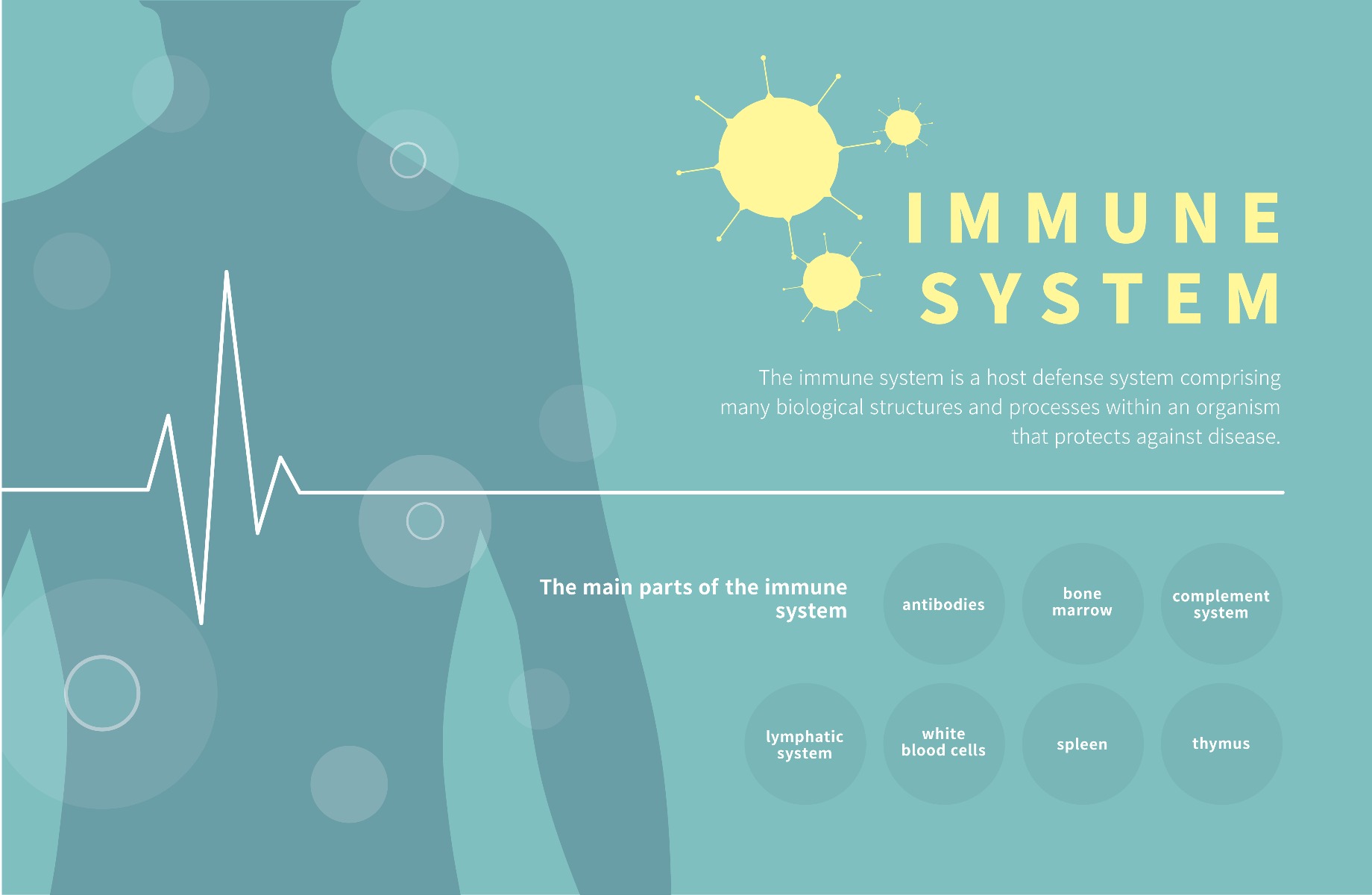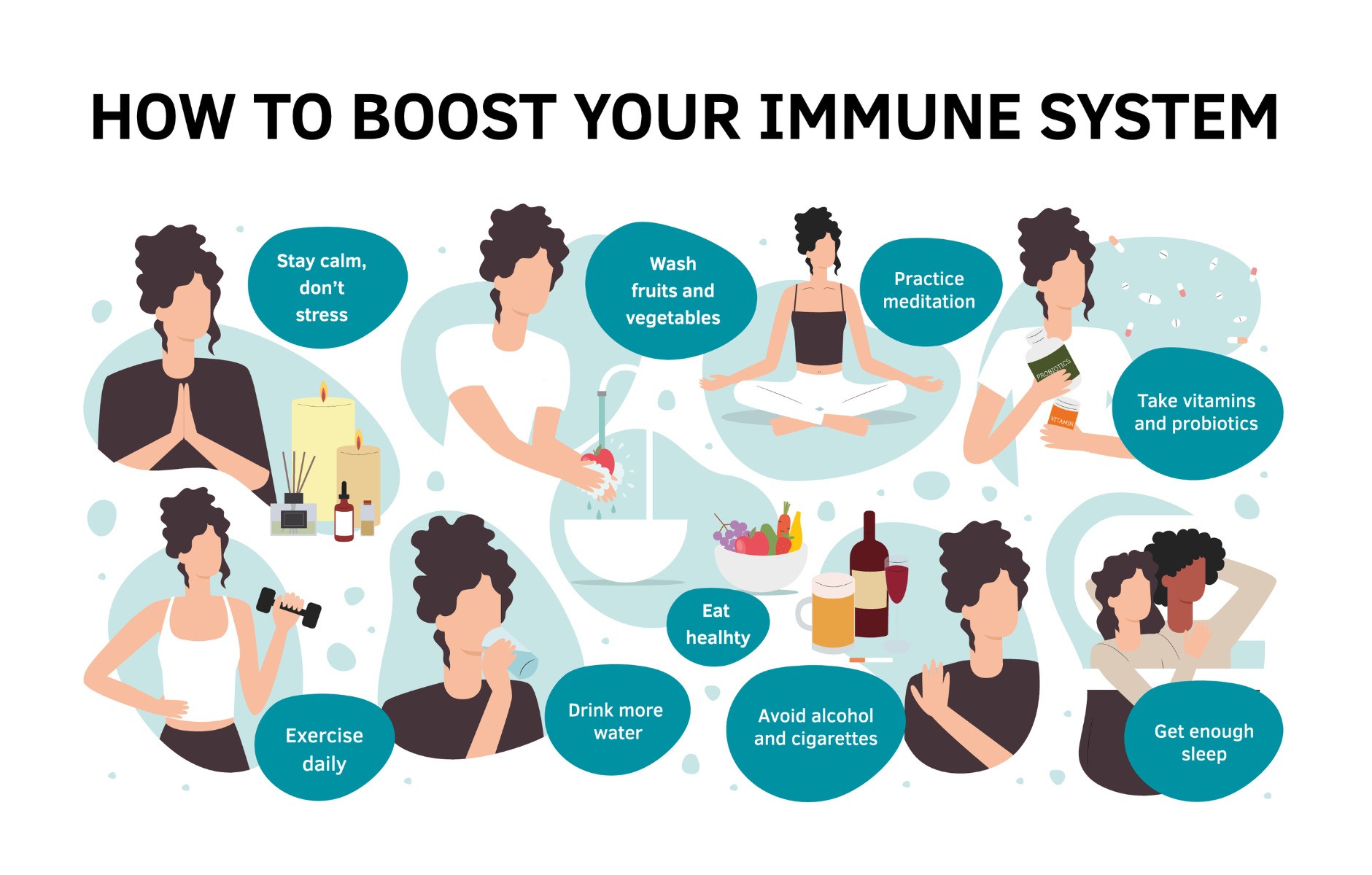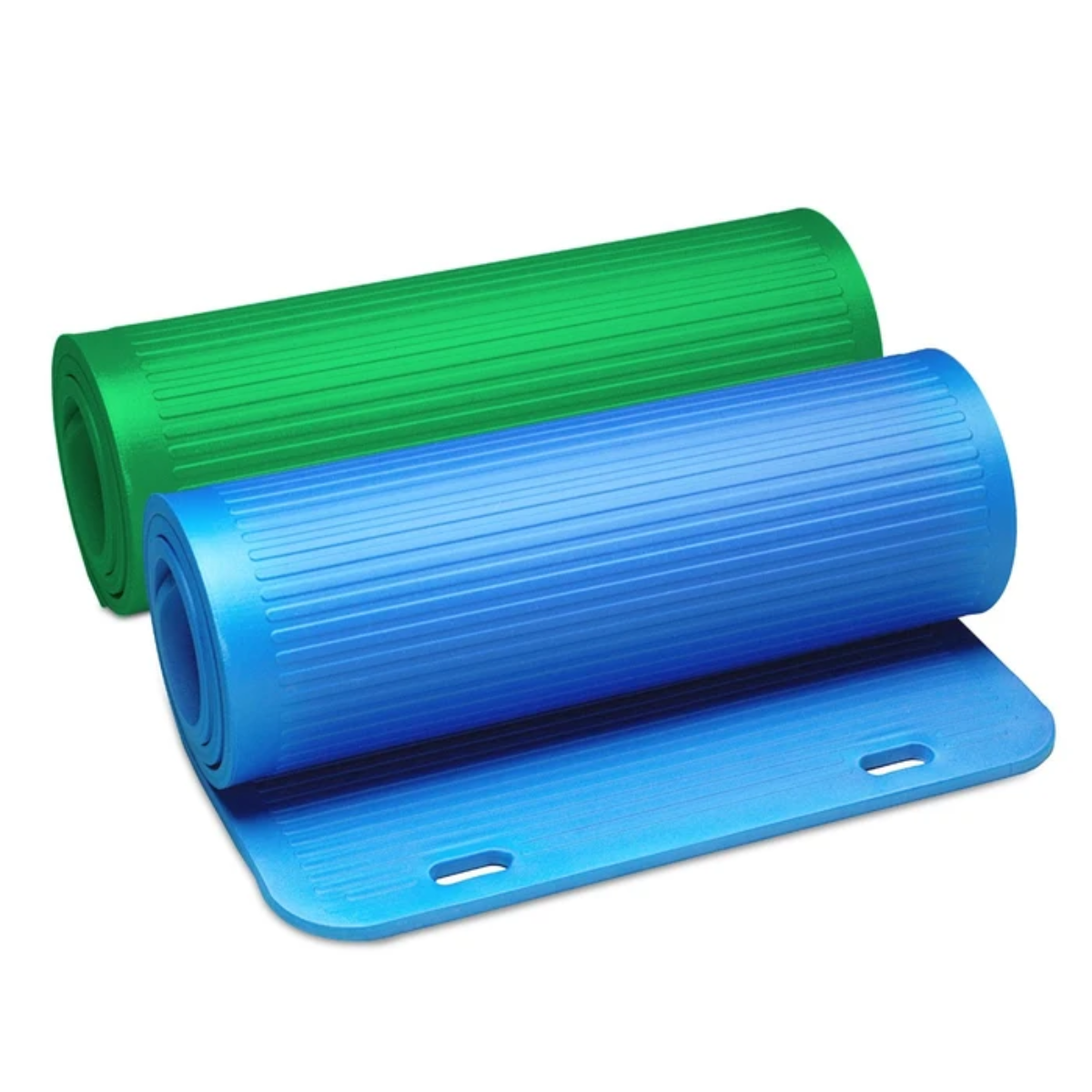Key Takeaways
- Your immune system works to recognize and identify an infection or injury in the body - if the immune system encounters a pathogen, it triggers an immune response
- Diet changes like incorporating specific foods, staying hydrated, and reducing sugar intake may help strengthen a person’s immune response
- 30 minutes of exercise, adequate sleep, and managing stress levels are other lifestyle changes that can help boost immunity
- Get started with these 11 daily practices you can do at home to help strengthen your immune system naturally!
Top Products in This Article
The immune system is the body’s natural defense system. Its main purpose is to protect your body from viruses and bacteria and help you recover after an illness. Consistently taking good care of yourself is the best way to support your overall health and immunity.
Help strengthen your immune system by maintaining a healthy lifestyle with these 11 daily practices!
Here’s a Breakdown of Your Immune System
Your immune system is made up of a network of cells, molecules, tissues, and organs working together to protect the body. Each type of cell plays an important role in identifying, marking, and destroying harmful pathogens that enter or develop in the body. Everyone’s immune system is different but generally, it becomes stronger as we grow older and are exposed to more pathogens. So how does it work?

If the immune system encounters an antigen, it triggers an immune response. An antigen can be a microbe such as a virus, bacteria, toxins, chemicals, or other substances that come from outside the body. If the body encounters an antigen for the first time, it will store information about the germ and how to fight it.1 If an antigen enters the body and B-cells recognize it (either from having had the illness before or from being vaccinated against it), these cells will produce antibodies.
Antibodies are special proteins that lock on to specific antigens. It then signals other parts of the immune system to attack and destroy the harmful pathogens. Once an antibody has been produced, a copy remains in the body so that if the same antigen appears again, it can be dealt with more quickly. This is how the human body develops immunity.2
When you start to feel sick, your symptoms are a sign that your body is fighting back against the infection or virus, triggering an immune response. You may not have a lot of control over how your immune system functions, but there are ways to keep from getting sick.
11 Ways to Boost Your Immune System Naturally
Consider these daily practices when strengthening your immune system! From eating a healthier diet to exercising and getting enough sleep, there is a wide variety of things you can try to best suit your lifestyle.

1. Eat your greens
Focus on incorporating more plants and plant-based foods in your diet. Choose leafy greens (kale, collards, spinach) or cruciferous vegetables (broccoli, brussels sprouts, cauliflower). You can also add vegetables to soups and stews, smoothies, and salads. Consume 5+ servings of vegetables.
2. Make sleep a priority
Sleep is when we repair our cells, especially our brain cells, and when we do most of our digesting and absorbing of nutrients. Not getting enough sleep can lead to higher levels of stress hormones and it can cause more inflammation in the body. It's recommended that individuals get 7 to 9 hours of sleep per night. To help improve sleep quality, use a cervical pillow to keep the neck and upper spine in a neutral position while sleeping. This helps reduce stress and strain to these areas of the body.

3. Exercise for 30 minutes
Regular exercise can help you boost your immune system and fight off infections. The recommended time is 30 minutes a day. Exercise helps to increase blood flow, reduce stress and inflammation, and strengthen antibodies. Don’t overdo it - too many rigorous workouts can weaken the immune system and leave you vulnerable to flu and viruses.
Need a few suggestions to get started? Find yourself a resistance band and read these articles.
- 4 At-Home Morning Workouts to Boost Your Energy
- 11 Exercise Games & Activities to Make Fitness Fun
- Use Your Full Name for Your Workout
- 33 THERABAND Resistance Band Exercises to Do At Home
4. Wash your hands
Washing your hands is one of the most effective ways to prevent the spread of germs. Scrub for 20-30 seconds to reduce the risk of infection. When you don’t have access to a hand washing station, use hand sanitizer.
5. Keep well hydrated
Staying hydrated helps your body naturally eliminate toxins and other bacteria that may cause illness, especially when it’s cold and flu season. It’s recommended that you drink eight 8-ounce glasses of water per day. Fill up a water bottle and have it next to you while you work, exercise, travel in your car, etc.
6. Soak up some Vitamin D
Vitamin D plays an important role in regulating immunity as it triggers an antimicrobial response and acts to protect the body from bacterial and viral agents. When exposed to pathogens, Vitamin D enables you to quickly fight off these invaders before it becomes a full-blown infection. If the sun isn’t shining where you live, try adding vitamin D-rich foods to your diet, like salmon, egg yolks, fortified cereal, and orange juice.3

7. Try apple cider vinegar
Some claim drinking apple cider vinegar protects the body against heart disease and helps fight infection. However, there is limited scientific evidence to support these claims.4 Made by fermenting the sugar from apples, some people like to dilute it in water and drink it as a beverage. Common dosages range from 1–2 teaspoons to 1–2 tablespoon per day.
8. Stop smoking
Smoking can tear apart sensitive lung tissue, which increases the risk of contracting bronchitis and pneumonia. Ingredients, like tar and other toxins, can kill antibodies and reduce the body’s production of them. Stop suppressing the immune system with cigarettes and cigars.

9. Reduce sugar intake
If you eat a lot of foods and beverages high in sugar or refined carbohydrates, you may be reducing your body’s ability to ward off illnesses. Instead, plan home cooked meals with whole foods. Whole foods have not been processed or refined and are free of additives and other artificial substances. Eating more whole foods and cooking from scratch will reduce your sugar intake.
10. Limit alcohol intake
Consuming too much alcohol can have negative effects on the immune system. It can weaken your body’s ability to fight infection and slow down your recovery time. Alcohol can also lead to dehydration. It causes your body to remove fluids from your blood through your renal system at a much quicker rate than other liquids.

11. Practice mindfulness
Stress affects your body’s immune response, causing you to produce extra levels of cortisol and cytokines that trigger inflammation. It can also decrease the number of white blood cells available to fight infection. Lowering your stress levels through meditation, yoga, exercise, and other mindful practices can help keep your immune system functioning properly. Have a hard floor or need more cushioning? You can practice yoga with a THERABAND exercise mat.
Conclusion
You can make several lifestyle and dietary changes to help strengthen your immune system. These include reducing your sugar intake, staying hydrated, working out regularly, getting adequate sleep, managing your stress levels, and more. It can be challenging to do all these things every day. However, the extra steps you take now to boost your immune system, will help ensure your body is better prepared to fight harmful pathogens or disease-causing organisms in the future.
References
1. Anonymous. (2021). How to Boost Your Immune System. Harvard Health. Retrieved from https://bit.ly/3uDTjWY
2. Gunnars, Kris. (2020). 6 Proven Benefits of Apple Cider Vinegar. Healthline. Retrieved from https://bit.ly/2QlqLTh
3. Healthline Editorial Team (2020). 3 Surprising Benefits of Vitamin D. Healthline. Retrieved from https://bit.ly/3a4FWaw
4. Newman, Tim. (2018). The Immune System: Cells, Tissues, Function, and Disease. Medical News Today. Retrieved from https://bit.ly/3wM1q5L
5. Shoemaker, SaVanna. (2020). 9 Tips to Strengthen Your Immunity Naturally. Healthline. Retrieved from https://bit.ly/3g2S2EY
Medical Disclaimer: The information provided on this site, including text, graphics, images and other material, are for informational purposes only and are not intended to substitute for professional medical advice, diagnosis or treatment. Always seek the advice of your physician or other healthcare professional with any questions or concerns you may have regarding your condition.








 France
France Australia
Australia











